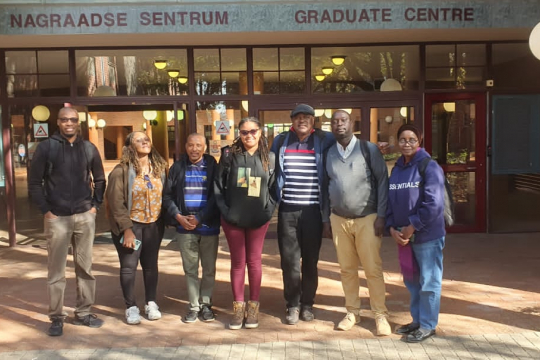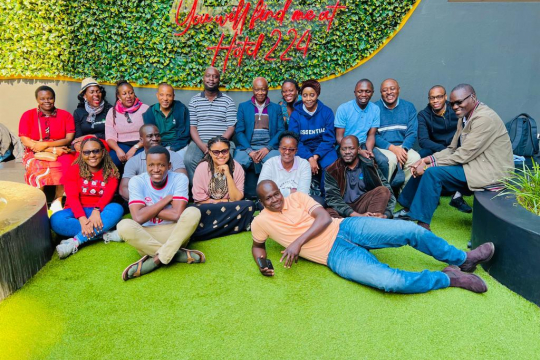EfD Tanzania Researchers attended a comprehensive training on modern methods for analyzing the productivity and efficiency of different types of decision-making units in the energy sector using Data Envelopment Analysis (DEA), and Stochastic Frontier Analysis (SFA).
The training was held from 11th to 22nd August 2023 at the University of Pretoria in South Africa. The main objective of the workshop was to enable participants to use Data Envelope Analysis (DEA) and Stochastic Frontier Analysis (SFA) to quantify energy sector inefficiencies and promote collaboration for a brighter energy future.
Can help improve efficiency
In addition, the workshops aimed to equip the participants with the tools to measure and evaluate performance in complex firms and organizations with multiple inputs and outputs, especially the energy sector, to help these organizations to improve their efficiency and productivity.
According to Stephen Kirama who led the team of eight participants from the University of Dar es Salaam School of Economics, these DEA and SFA methods help researchers investigate the source of inefficiency and productivity differences across organizations and time. Such sources may include technical efficiency, allocative efficiency or substitutability/complementarity of input factors, scale efficiency, scale economies, scope economies, and technological change.
Relevant for policymaking and benchmarking
He noted that traditionally, economic analyses assume economic agents (including households, firms, and others) are always fully efficient. This kind of training challenges traditional assumptions and presents theoretical concepts, models, and tools needed to analyze and quantify the levels of inefficiency and productivity at a point in time and their movement over time.
“It was a great training because participants gained practical experience in implementing DEA in Python and SFA in STATA to conduct empirical analysis using actual datasets, said Martin Chegere a research fellow and data manager at EfD Tanzania.
“The participants gained experience on how and when to apply these techniques in public policy-making and research involving benchmarking.
Combined with a symposium on energy
Other participants from EfD Tanzania and the University of Dar es Salaam School of Economics were Rosemay Taylor, Gerald Kibira, Onesmo Selejio, and Beatrice Mkenda. Graduate students included Salma Emmanuel and Erasto Saganda
In addition to the workshop, the EfD Tanzania delegation also participated in a symposium organized by the South Africa Association of Energy Economics where Stephen Kirama presided on the panel discussion “Charting a Path to a Sustainable Energy Future – Perspective from North and South” held on 21st August 2023. Stephen Kirama presented a talk titled: Energy Landscape in Tanzania: Status, Potentials, Mix, Transitions and Challenges.
By: Salvatory Macha

